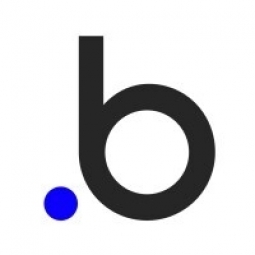Technology Category
- Platform as a Service (PaaS) - Application Development Platforms
Applicable Industries
- Buildings
- Cement
Use Cases
- Building Automation & Control
- Time Sensitive Networking
About The Customer
FreeTime is designed for heavy social media users who are looking for real-life social interactions. The app is particularly beneficial for those who feel isolated and lonely due to excessive use of social media. It provides a platform for these individuals to schedule and manage their free time effectively, encouraging them to spend more time with friends in person rather than through a screen. The app's user-friendly interface and unique features, such as user profile pages with clean URLs, make it easy for users to share their availability with friends and plan hangouts.
The Challenge
The rise of social media platforms has paradoxically led to increased feelings of loneliness among heavy users. According to a survey, 73% of heavy social media users report feelings of loneliness, and three out of every five Americans are lonely. Despite the promise of social media to connect people, it has failed to facilitate real friendships. The act of scrolling through a feed is no substitute for human connection. The challenge was to create a solution that encourages people to put down their phones and spend time with friends in real life. The founders of FreeTime, both product managers, had a clear vision for such an app but lacked the necessary coding skills to build it. They also had specific requirements for the app, such as user profile pages with clean URLs based on usernames, which most no-code platforms could not meet.
The Solution
FreeTime, an app built on Bubble's no-code platform, was developed to address this challenge. The app allows users to sign up, add in their free time, and send a link to their friends. Friends can then book time to hang out without needing to sign up or download anything. If friends do sign up, users can follow them and stay updated on when they're free, then book a hangout with a quick tap. The app was built on Bubble because it met all the specific requirements the founders had, including the ability to create user profile pages with clean URLs based on usernames. This feature is crucial as it allows users to share a nice URL with their friends. With Bubble, it's easy to populate a page with user-specific content based on the URL.
Operational Impact
Quantitative Benefit

Case Study missing?
Start adding your own!
Register with your work email and create a new case study profile for your business.
Related Case Studies.

Case Study
Energy Saving & Power Monitoring System
Recently a university in Taiwan was experiencing dramatic power usage increases due to its growing number of campus buildings and students. Aiming to analyze their power consumption and increase their power efficiency across 52 buildings, the university wanted to build a power management system utilizing web-based hardware and software. With these goals in mind, they contacted Advantech to help them develop their system and provide them with the means to save energy in the years to come.

Case Study
System 800xA at Indian Cement Plants
Chettinad Cement recognized that further efficiencies could be achieved in its cement manufacturing process. It looked to investing in comprehensive operational and control technologies to manage and derive productivity and energy efficiency gains from the assets on Line 2, their second plant in India.

Case Study
Intelligent Building Automation System and Energy Saving Solution
One of the most difficult problems facing the world is conserving energy in buildings. However, it is not easy to have a cost-effective solution to reduce energy usage in a building. One solution for saving energy is to implement an intelligent building automation system (BAS) which can be controlled according to its schedule. In Indonesia a large university with a five floor building and 22 classrooms wanted to save the amount of energy being used.

Case Study
Powering Smart Home Automation solutions with IoT for Energy conservation
Many industry leaders that offer Smart Energy Management products & solutions face challenges including:How to build a scalable platform that can automatically scale-up to on-board ‘n’ number of Smart home devicesData security, solution availability, and reliability are the other critical factors to deal withHow to create a robust common IoT platform that handles any kind of smart devicesHow to enable data management capabilities that would help in intelligent decision-making

Case Study
Commercial Building Automation Boosts Energy Efficiency
One of the challenges to building automation is the multitude of non-interoperable communications protocols that have evolved over the years. Buildings have several islands of automation. Bridging the islands of different automation without losing the considerable investment in each specialized control network is the main focus in this solution.




